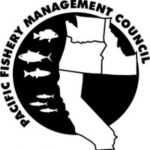NOAA concedes:sturgeon not endangered, after all
![]() Without a stock assessment and to howls of outrage by industry and questions about the justification of the action by the New England Fishery Management Council, NOAA approved a petition by the Natural Resources Defense Council 15 months ago that granted Atlantic sturgeon protection under the Endangered Species Act. Now, the National Oceanic and Atmospheric Administration decided that its Jan. 31, 2012 action — declaring the sturgeon endangered along the entire Atlantic Coast except in the Gulf of Maine, where it was only “threatened” — was premature and may not have been necessary. continued
Without a stock assessment and to howls of outrage by industry and questions about the justification of the action by the New England Fishery Management Council, NOAA approved a petition by the Natural Resources Defense Council 15 months ago that granted Atlantic sturgeon protection under the Endangered Species Act. Now, the National Oceanic and Atmospheric Administration decided that its Jan. 31, 2012 action — declaring the sturgeon endangered along the entire Atlantic Coast except in the Gulf of Maine, where it was only “threatened” — was premature and may not have been necessary. continued

















































This Sturgeon debacle should serve as a pretty clear indication of how our fisheries “management” system works, or more to the point, how it doesn’t work.
How, by any stretch of regulation protocol, methodology, or just plain ol’ administrative integrity (ha!), can NOAA declare a species to be endangered without an assessment? Perhaps NOAA’s luminous legal department, Lois Schiffer, could give us the “legal” justification for that one— of course, as long as it’s not attorney-client privilege, or National Security classified (we certainly wouldn’t want any terrorist fishermen getting their fishy hands on that info).
What is clear about this matter is the fact that NOAA is cowed and manipulated and directed by law suit threats from the ENGOs more than by what is actually ocurring in the ocean. This is something that can be witnessed at New England Fishery Council meetings when Pew and Conservation Law Foundation lawyers arrogantly scold the council and threaten law suit consequences during the public comment period.
Threats that if the council votes contrary to the wishes of Pew, EDF, CLF, Oceana, etc. there will be “consequences”.
In the case of the Sturgeon law suit brought by the National Resources Defense Council, do you suppose that the then Secterary of Commerce, John Bryson,a founding member of the NRDC might have also had something to do with the endangered Sturgeon decree?